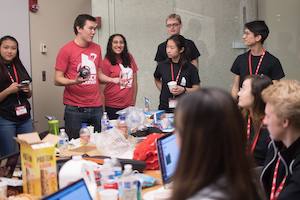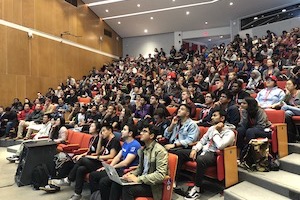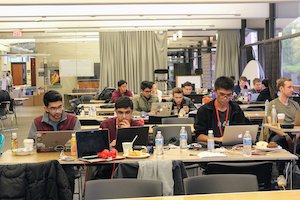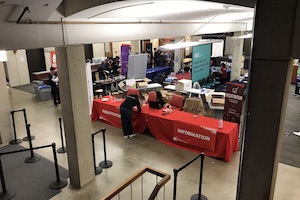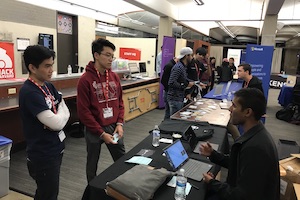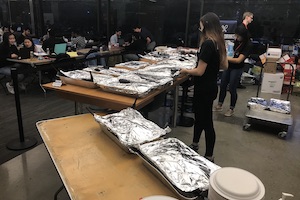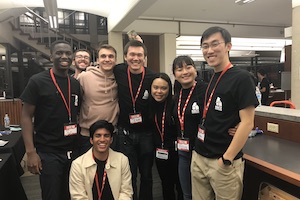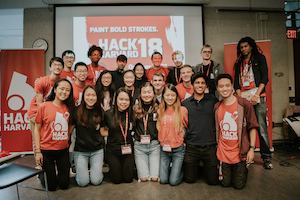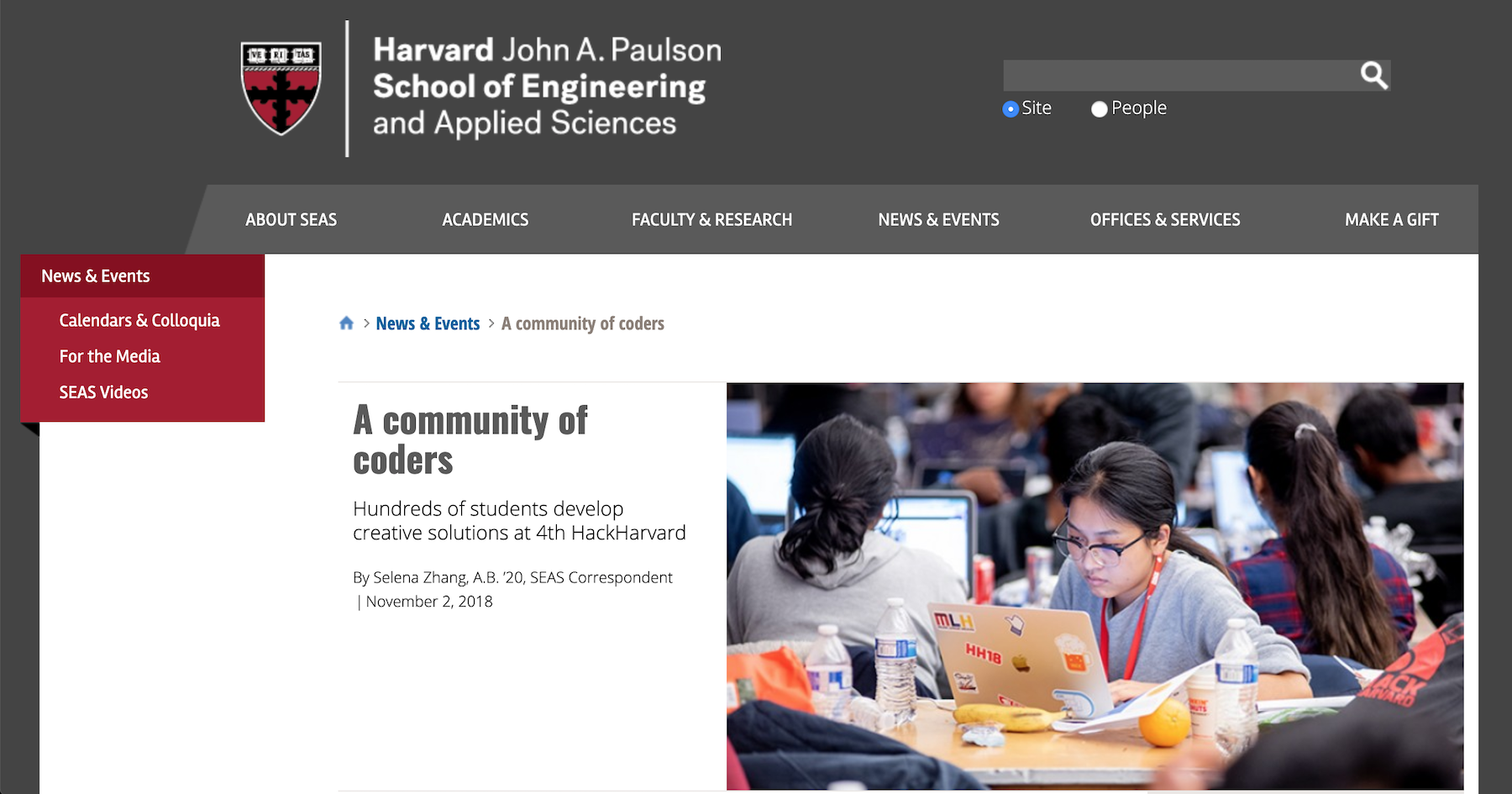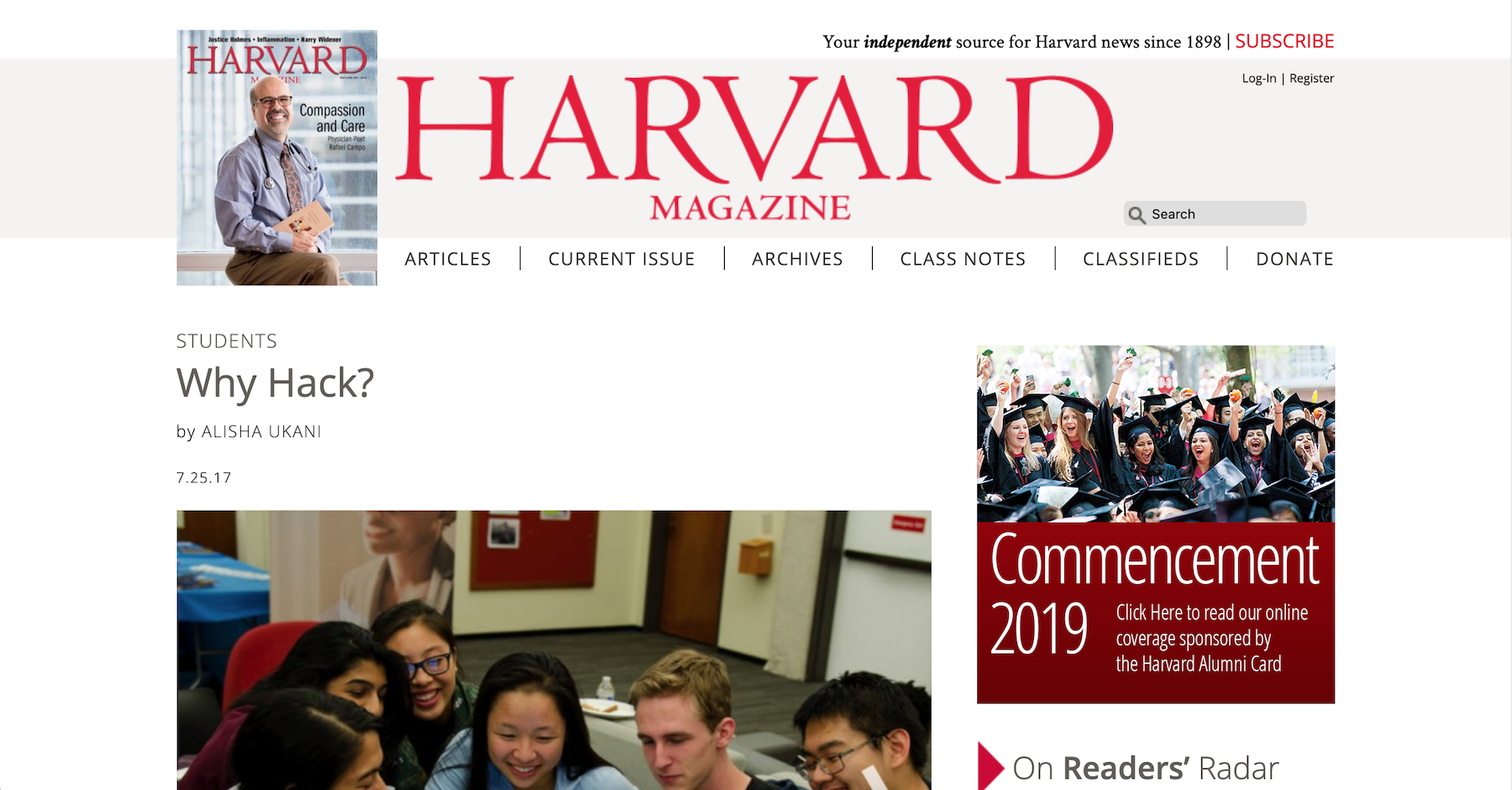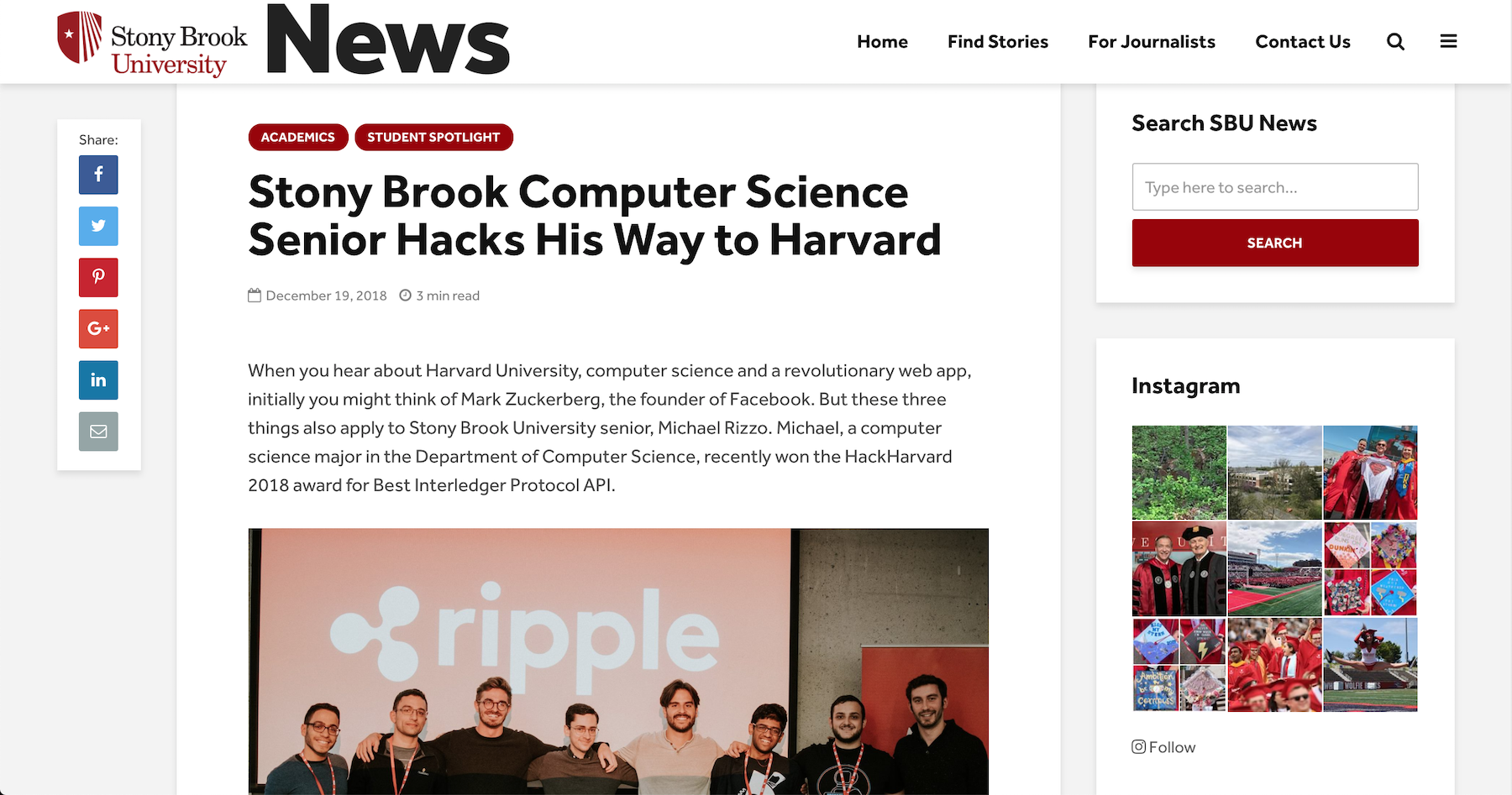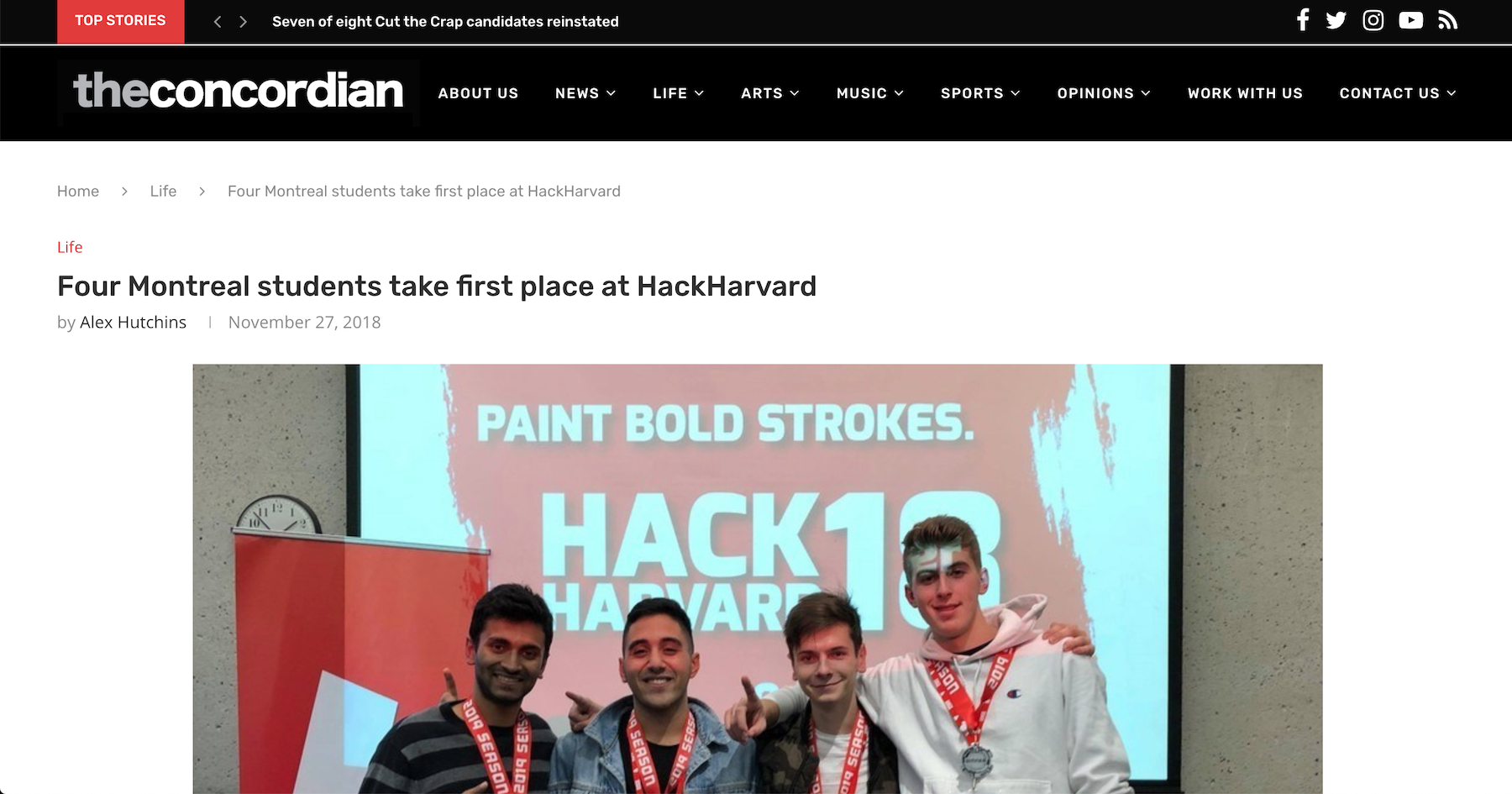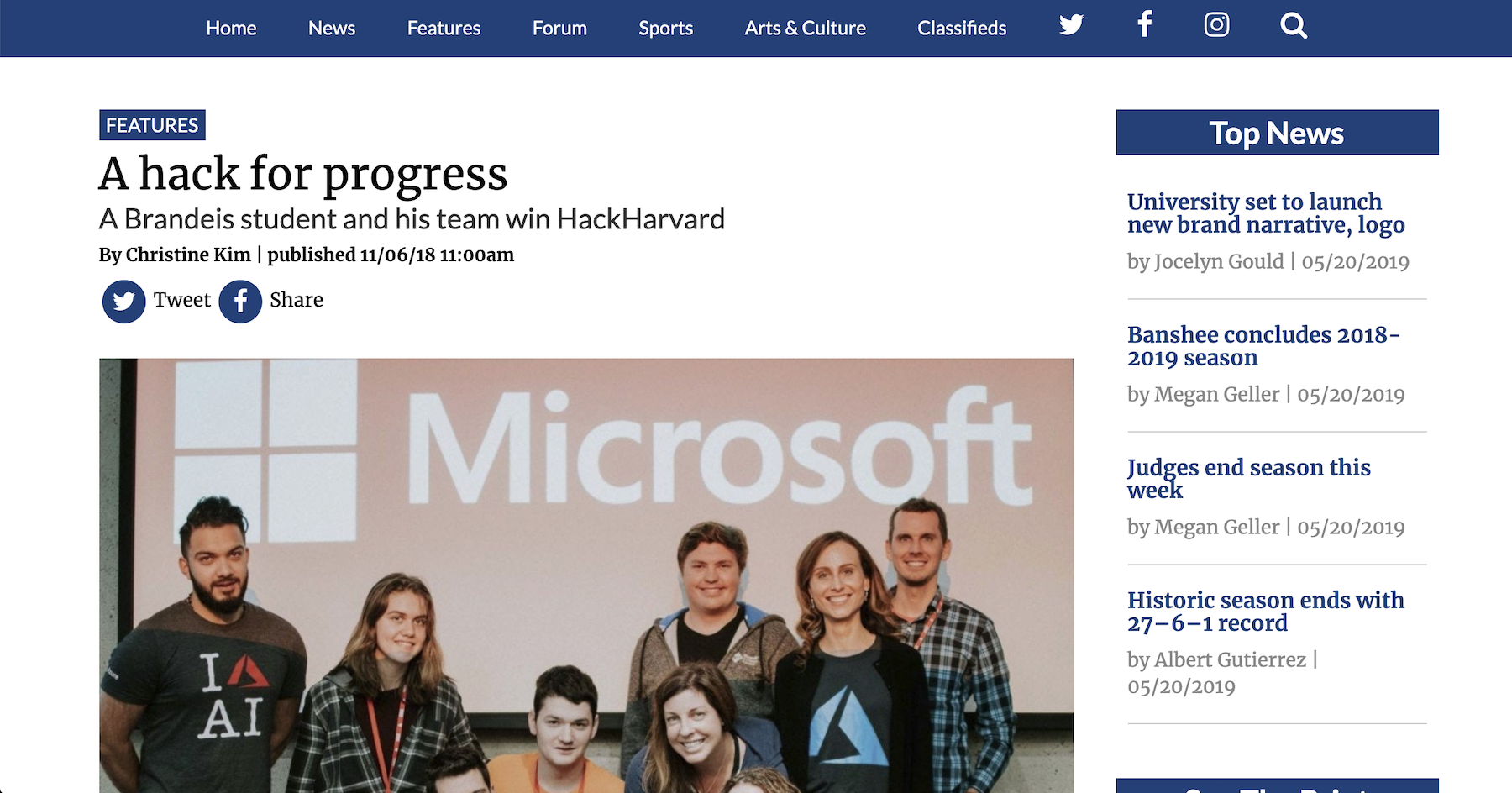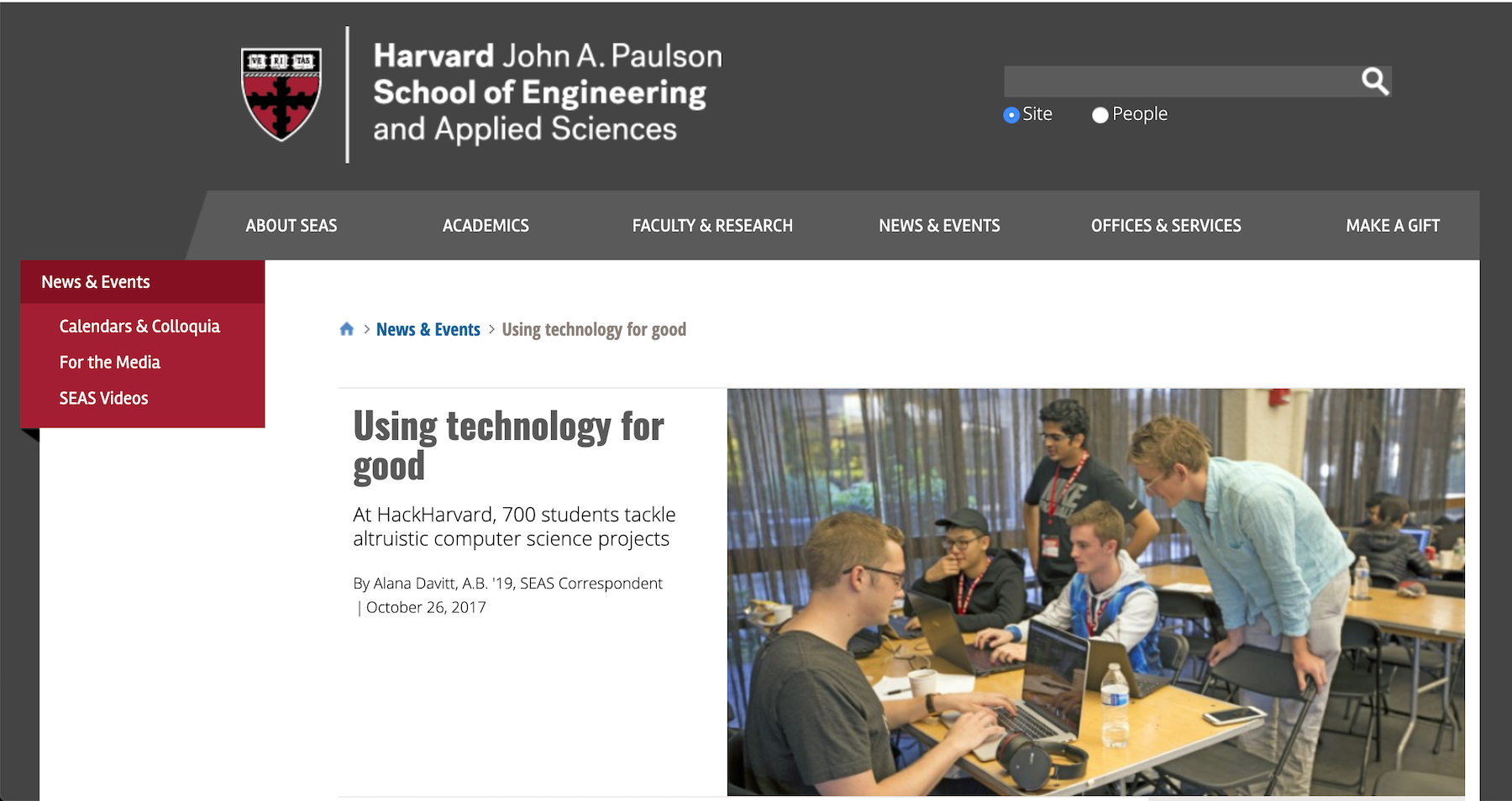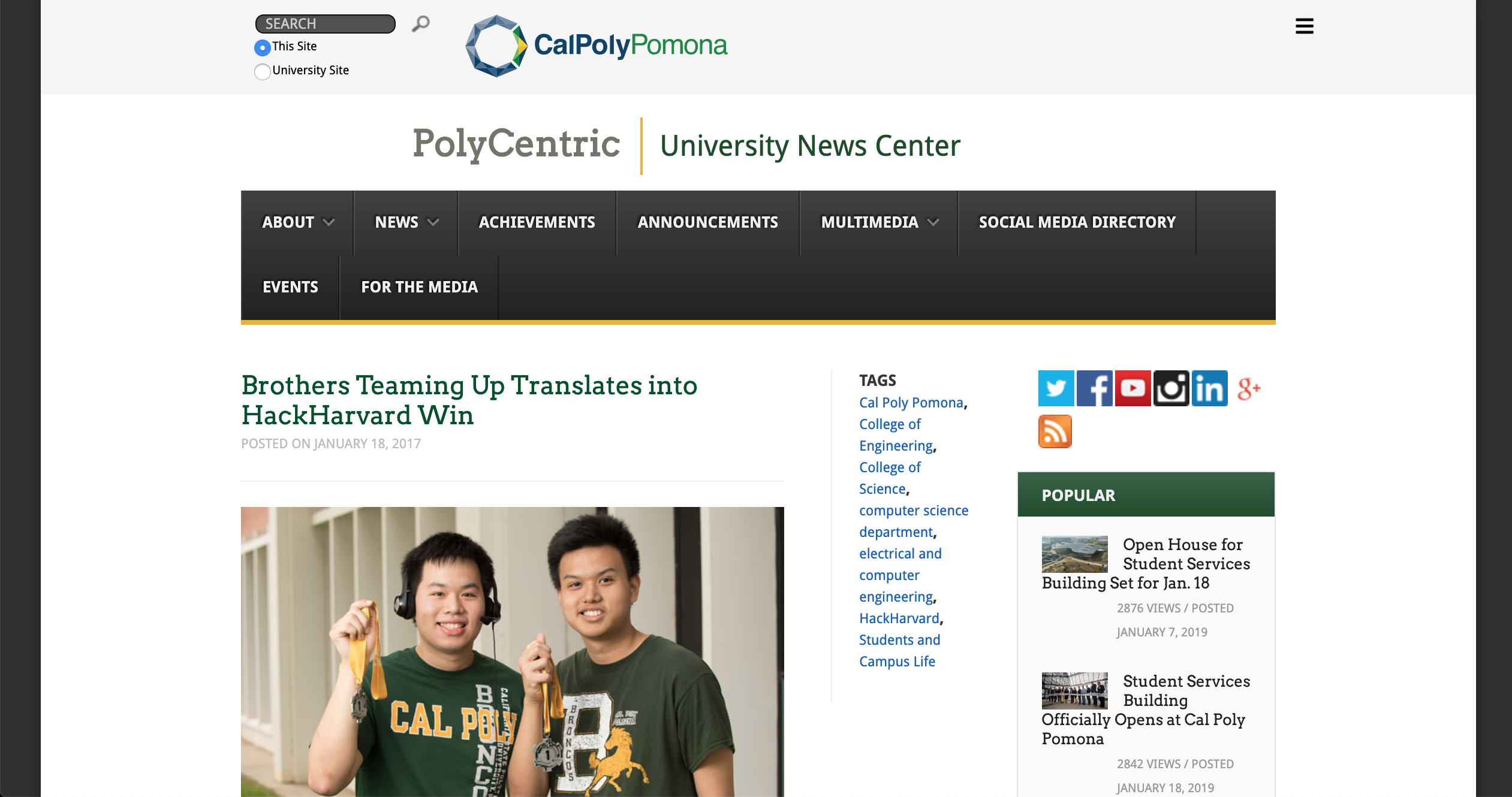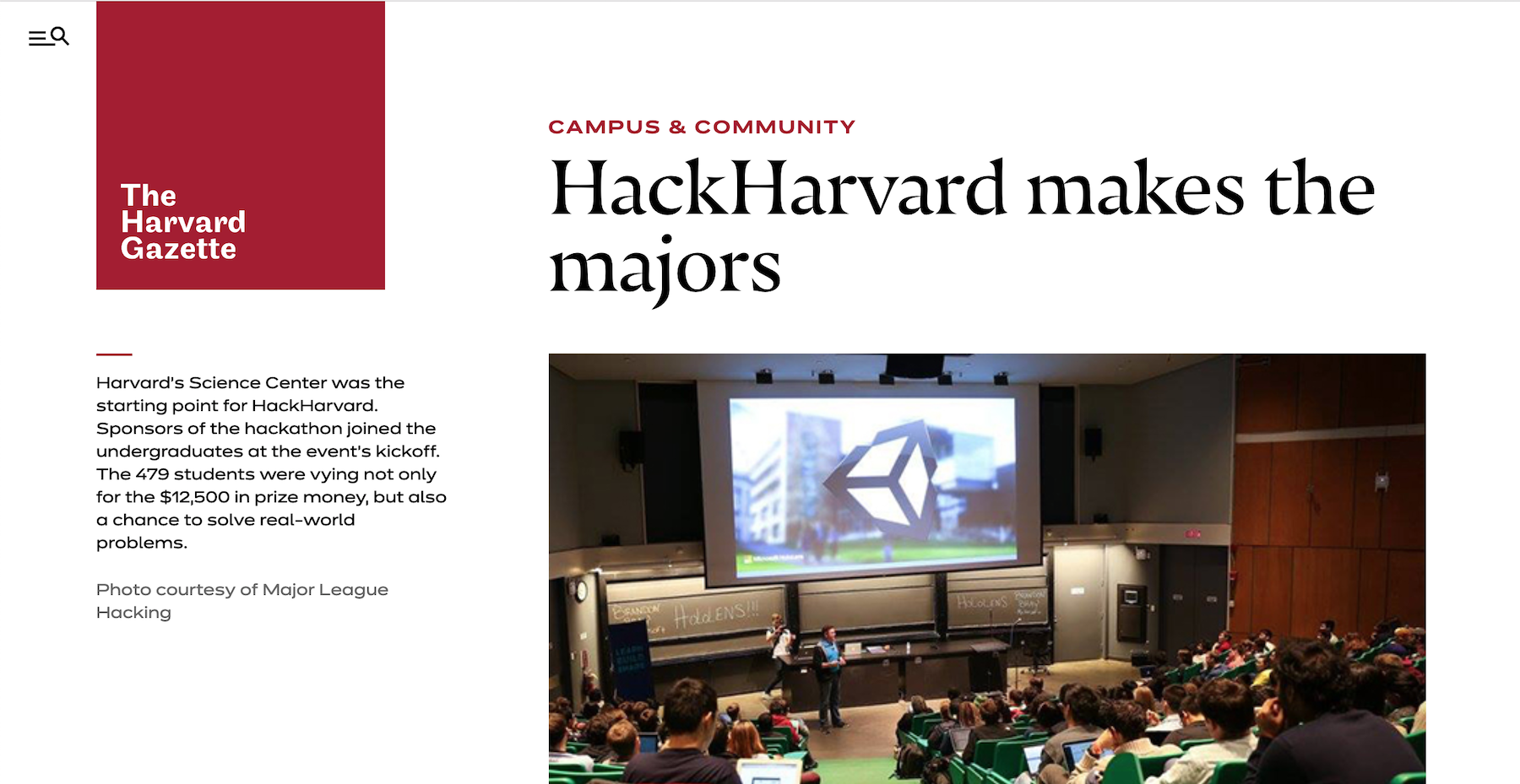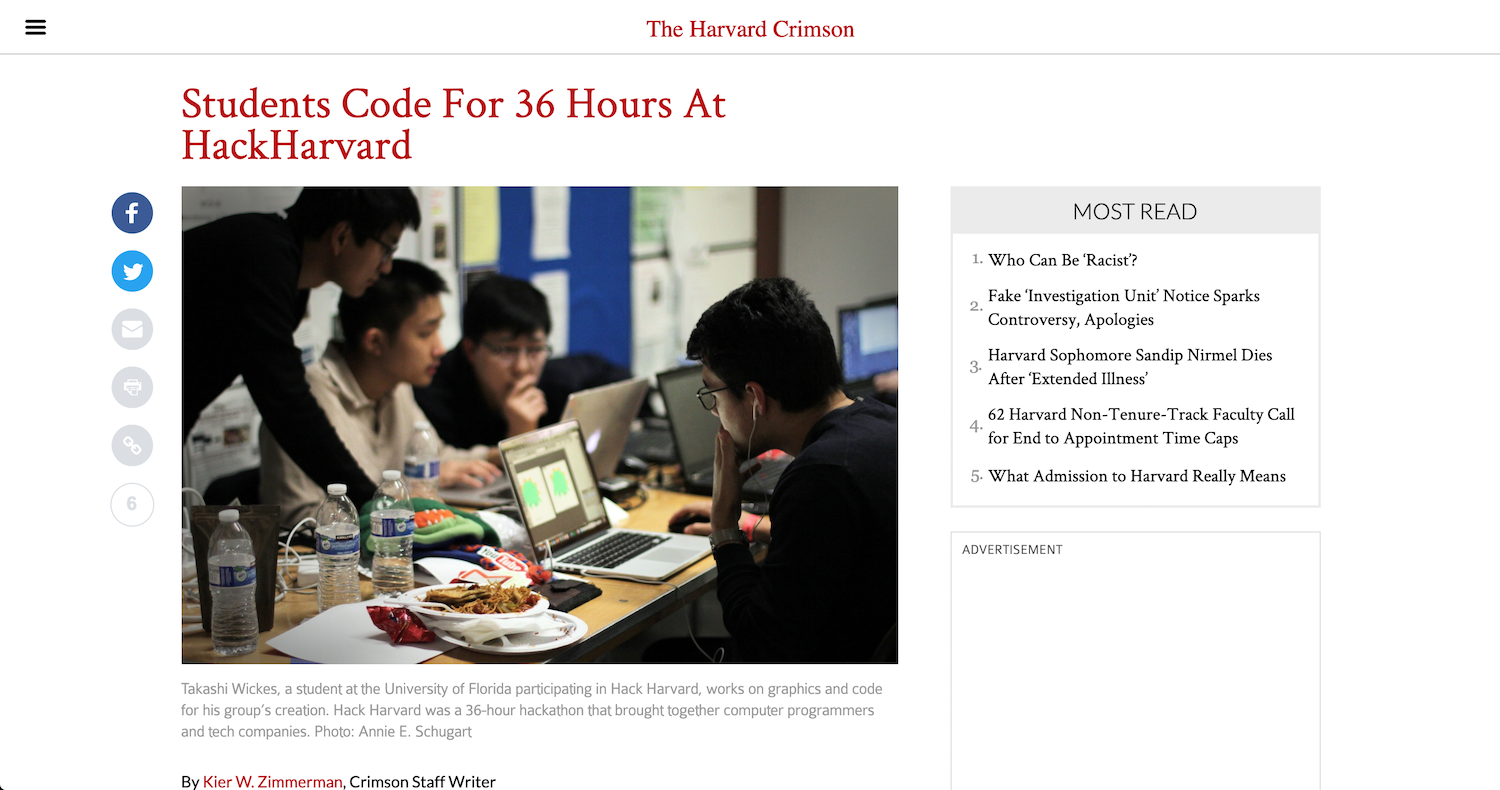
HackHarvard 2018
The Fourth Annual Hackathon at Harvard University

Oct 2018 • events
HackHarvard is a hackathon: a hybrid programming competition and developer conference hosted entirely by students for students. HackHarvard 2018 was the fourth installation of the annual event and was held the weekend of October 18-20, 2018 on the campus of Harvard University. There were over 600 attendees from over 100 universities representing 23 countries.
For this event, I was a senior director meaning I oversaw all team operations including logistics, partnerships, design, and hacker experience. I managed a team of 35 people and mentored new members on the daily operations of hosting a large hackathon. I specifically took a large role on the partnerships team managing inbound partnership leads.
In addition to the afforementioned roles, I produced significant documentation on best practices for the hackathon to preserve institutional knowledge. I set up an organizational chart and designed reporting hierarchies to maximize success of the team. I developed a sales training program for our newly recruited members.
The gallery below is a selection of pictures from the event.
Organizational Structure

The team organization chart is documented above. There are four teams - Logistics, Partnerships, Hacker Experience, and Design - each of which has a director (diamonds with solid border, x4) responsible for managing the whole team of 2-10 people. The chief executive who is responsible for keeping the team on schedule is the program manager (grey diamond, x1).
Within each team, any member who wishes to take a management role is a project manager (diamonds without border) with two direct-reports. The direct-reports are always board members (circles) who are first or second year members interested in learning how the hackathon works without the responsibility of managing others.
The last key feature of this organizational structure was designation of responsibility. Every individual was responsible for ensuring a set of tasks get done. How they got those tasks done, who they assigned them to, what internal deadlines that person set was at their own discretion. This is notable because "responsibility to ensure things get done" is distinctly separated from the notion of "responsibility to do things".
Here's an example: a project manager on logistics will be responsible for all event food (let's call this person Jordan). Jordan has two people on his team, Carrie and Peter. Jordan can assign 50% of the work to Carrie and 50% to Peter. He can also give 33% to himself and 33% to the other two. No matter how he assigns the work, he is responsible for turning in a complete 100% at the end, regardless of who does it.
This system makes managers accountable to the work they're supposed to complete. It makes it impossible for managers to throw their direct-reports under the bus when work is late because it is the manager's responsibility. This particular organizational structure and training creates stronger managers from HackHarvard who go on to lead in other organizations.
Press Mentions
HackHarvard has also garnered several mentions in the media both in the Harvard community and greater hackathon community over the past four years.

Harvard '19 | B.S. Electrical Engineering
